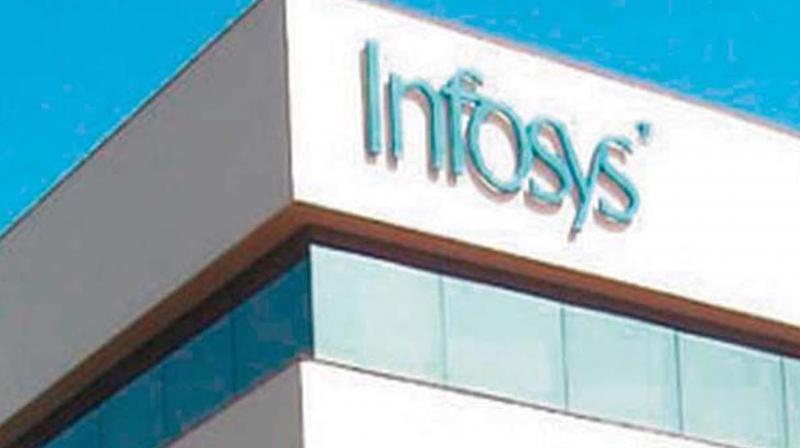Infosys taken to court on unpaid overtime

BENGALURU: Bengaluru-based tech major Infosys was embroiled in a fresh lawsuit in the US, Monday when Anuj Kapoor, a former Infosys employee of the company who worked on a project for CVS Health Corporation, a retail pharmacy and healthcare company based in Rhode Island, filed a suit against Infosys in June, alleging the company made him work more than 1,000 hours of overtime without any remuneration.
In his court filing, Kapoor said he was required to work 11-hour days at times and was paid for eight hours or fewer as CVS ‘refused to be billed for overtime wages.’ The filing further read, “Plaintiff estimates that between May of 2015 and June of 2017, he worked approximately one thousand eighty-four overtime hours for Defendant, each of which was over and above his weekly forty hours, without any form of compensation.’’
Infosys in August responded, stating that the employee was an ‘hourly’ worker on an H1-B visa even though Infosys had listed him as a salaried employee in an application with the Department of Labour, a reason for its Wage and Hour Department in the State of Rhode Island to initiate an investigation into the matter. The authority is also investigating the possibility that Infosys is filing for H1-B visas under the ‘exempt salaried’ category while using the employees as non-exempt hourly workers.
An email sent by this newspaper to Infosys seeking its official comments on the matter elicited no response at the time of going to the press. A senior law expert based in the US said, “I think Infosys faces two issues. The first is payment of overtime and taxes on overtime. It would seem quite likely that if this employee is hourly and categorized as non-exempt, then they will need to make him and others hole on this. It’s hard to estimate the total liability this could create but if a significant number of employees are deemed to be non exempt then they could be facing a substantial bill. There are other factors than hourly which go into determining exempt vs non exempt and I would judge that Infosys may still have a strong case.’’
But things could be bad if there is a potential misrepresentation with the immigration authorities. Under Trump Administration, the immigration authorities have been hyper vigilant in enforcing the immigration rules, and Infosys as well as the other Indian service provides have come in for close examination. If this is deemed to be a misrepresentation it will only add to the problems of getting new visa’s and they may lose some of H-1B which have already been granted,’’ he warned.
As per Peter Bendor-Samuel CEO of Everest Group, Overtime is paid for hourly workers, salaried workers do not get overtime. Most of the employees of lead IT firms would qualify as salaried and hence not qualify for overtime. The type of hours described here makes me think that this and the other roles were in programing or system integration. Typically these roles are seen as salaried. There has been some move by labour unions to characterize these as hourly, but to date it has achieved little traction. I would note that in this case the Indian firms are well inside generally accepted industry practices and any change by the courts to this would impact all US firms.’’
Bengaluru based IT lawyer Sajai Singh said, overtime is recorded electronically whether an employee works from office, home or a cafe. Recording and reading of work hours are automated, leaving no or very little human intervention and errors. It looks like this issue is due to lack of understanding of the engagement contract by parties involved.’’ Back in 2008, Infosys faced a similar lawsuit, also regarding on payment of overtime dues. Eventually, the company had to cough up a large sum and pay $26 mn to the California Division of Labour Standards Enforcement to settle case. Its arch rival Wipro too was sued by an employee in the US on labour issues.

